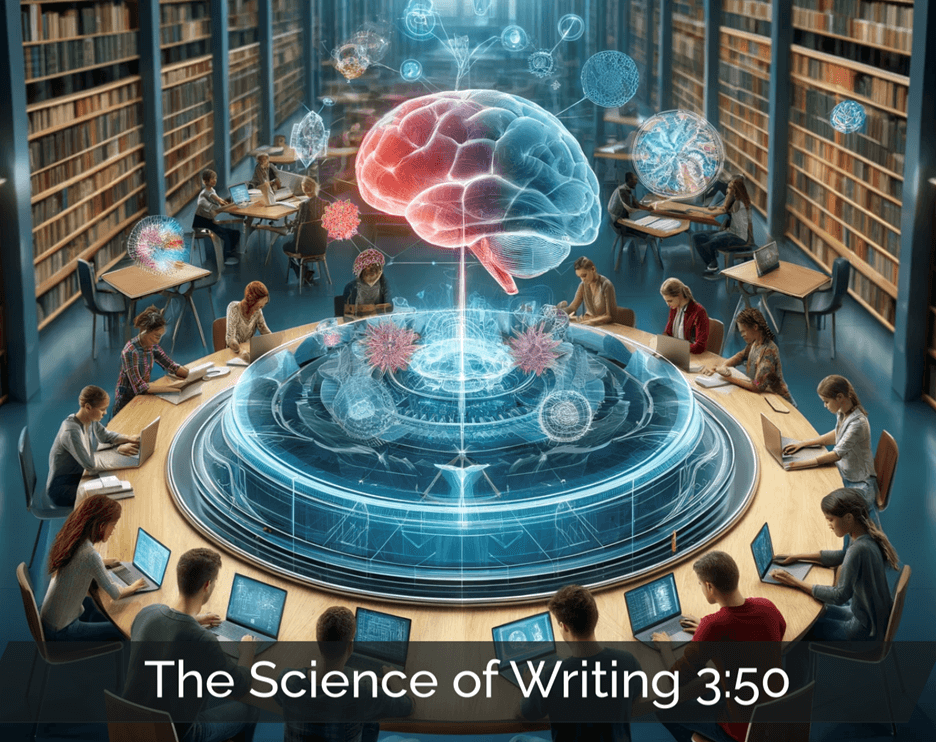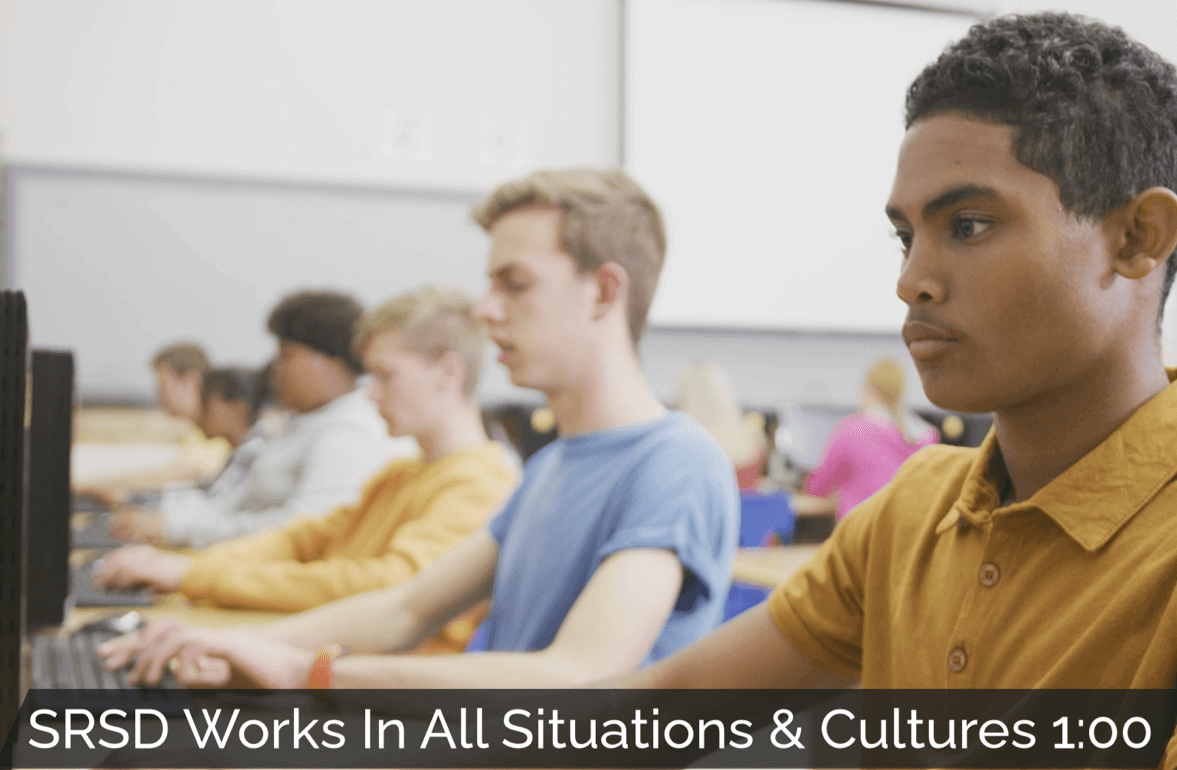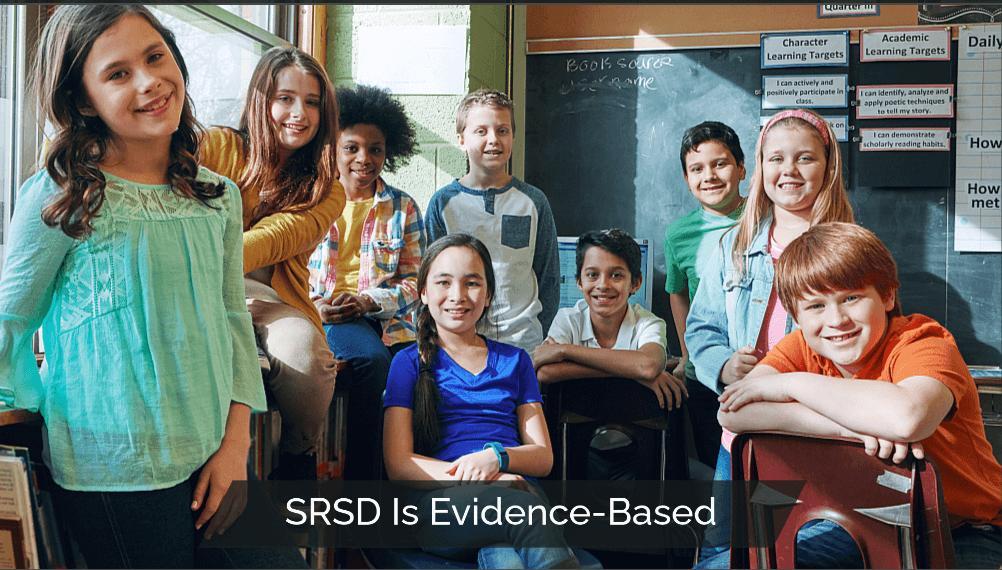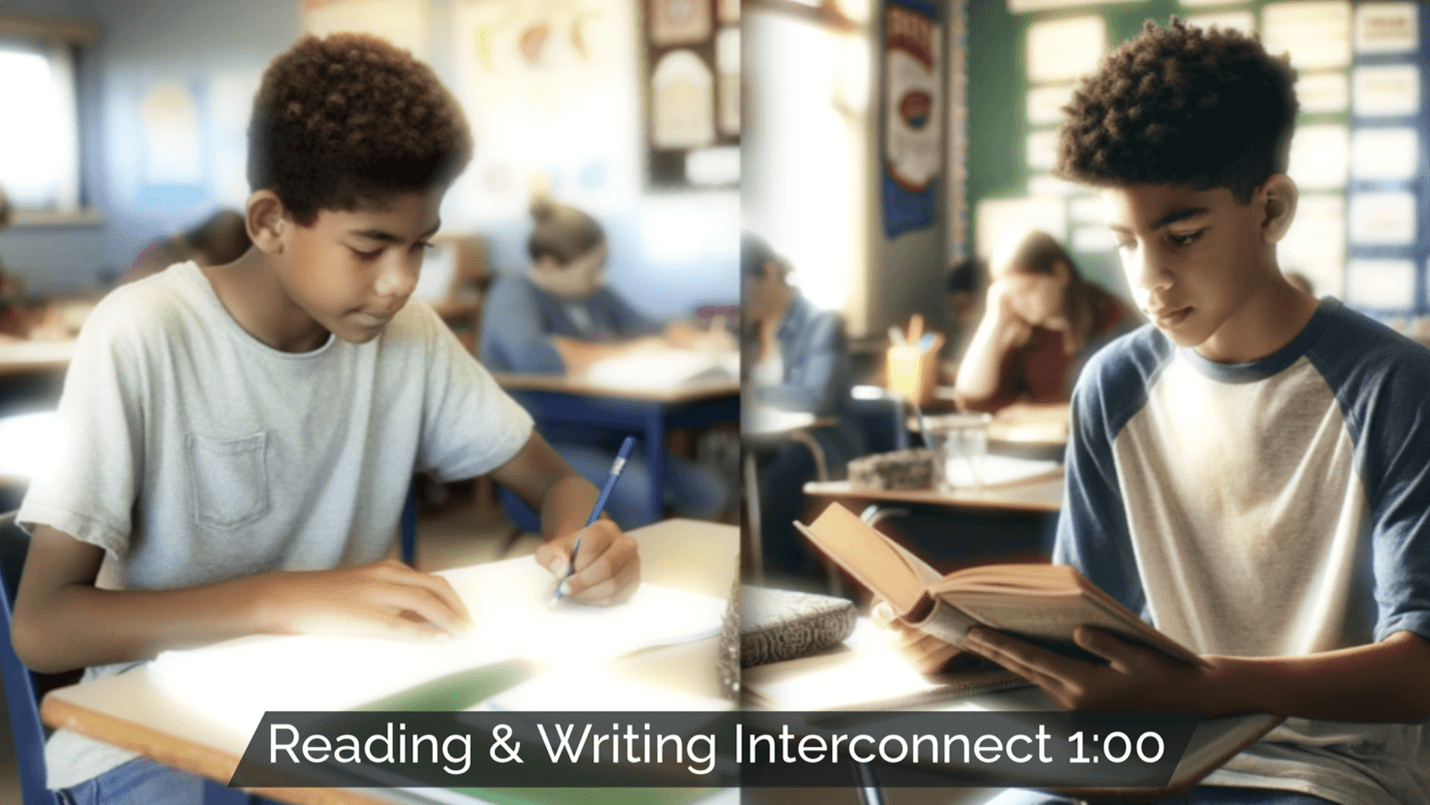SRSD: A Key Component of the Science of Writing
Discover the Writing Model Backed by 40 Years of Research
What Is the Science of Writing?
The science of writing is built on decades of research from experts around the world, showing what truly works in teaching writing. This evidence-based approach guides effective instruction for developing writing skills, from foundational abilities like handwriting and spelling to more advanced skills like generating ideas and organizing thoughts.
How Is SRSD a Key Component of the Science of Writing? Drs. Karen Harris and Steve Graham, along with an international network of education researchers, have conducted more than 170 studies on SRSD for writing instruction. These studies consistently demonstrate positive impacts on student writing performance and teacher self-efficacy. In a recent meta-analysis of elementary writing instruction, researchers found that SRSD is 3 times more effective than traditional writing instruction.
SRSD is effective because it addresses the more complex skills that are missing from traditional classroom writing instruction. Across a six-stage instructional framework, teachers learn to actively build students’ vocabulary and background knowledge within a targeted genre prior to providing direct explicit instruction in the full composition process. Modeling the use of self-regulation strategies during the writing process including goal setting, self-monitoring, self-instructions, and self-reinforcement is a key part of this instruction. Then teachers engage in a gradual release of responsibility as they move these new tools into the hands of students through collaborative modeling, supported practice, and independent performance.
Evidence-Based Writing Instruction: Unequaled Effect Sizes
One way to measure the impact of instruction is an effect size. This is a numerical calculation that allows researchers to compare the effects of many different types of instruction across many different types of studies. An effect size of 0.3 is considered small; 0.5 is considered moderate; and 0.8 is considered large. Most writing instruction results in a small effect size, while SRSD writing instruction has achieved incredible effect sizes well over 1.0.
US DOE Study on Elementary Writing Instruction
“Strongest evidence rating.”
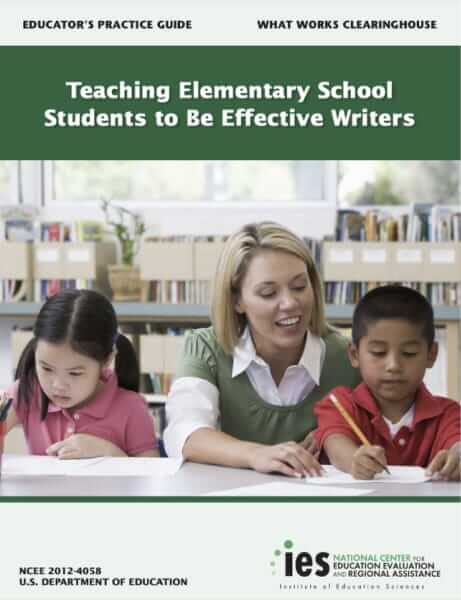
Institute of Education Sciences (IES)
The IES Practice Guide, “Teaching Elementary School Students to Be Effective Writers” by Graham et al. (2012), presents evidence-based recommendations from the science of writing that align with the principles of SRSD. Self-Regulated Strategy Development has been identified as having the strongest impact on improving student writing, supported by consistent, causal, and generalizable evidence across diverse student populations. This research underscores SRSD’s effectiveness, and the practice guide integrates these insights to help teachers enhance their writing instruction.
Carnegie Study on Adolescent Writing Instruction
“The single largest effect of any approach to writing.”
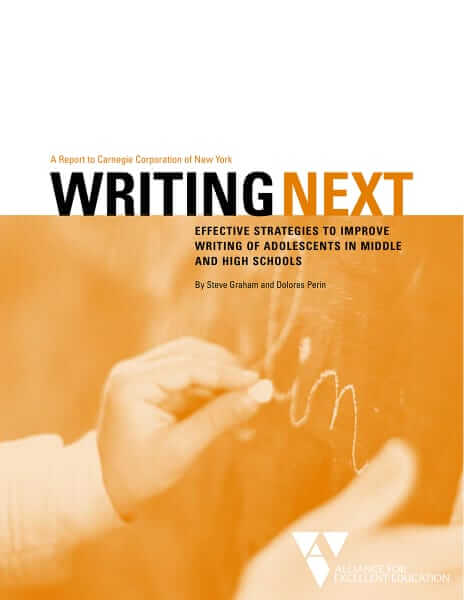
Writing Next
The study “Writing Next: Effective Strategies to Improve Writing of Adolescents,” by Graham and Perin (2007), offers scientific evidence on effective writing interventions for middle and high school students. It identifies eleven key strategies, such as explicit instruction in writing strategies, summarization, and collaborative writing, significantly enhancing students’ writing skills. The findings show that these evidence-based approaches lead to substantial improvements in the quality and fluency of adolescent writing.
Every Student Deserves Scientific, Evidence-based Writing Instruction
Extensive research has demonstrated the effectiveness of SRSD across diverse student populations, grade levels, countries, languages, and settings.
For Example:
– Students in K-12 and beyond
– Students in general education
– Students in special education
– Students who are bi/multilingual
– Students worldwide
– Students in a variety of instructional settings (e.g., individual, small group, and whole class)
– Students in a variety of content areas (e.g., writing, reading, math, history, social studies)
Dr. Steve Graham
A New Understanding of Best Practices in Writing Instruction
Steve Graham’s groundbreaking research on SRSD and the science of writing—how it functions, evolves, and can be effectively taught—has profoundly reshaped the field of writing education and redefined the best practices in writing instruction. His work has provided critical insights as an advisor to the U.S. Department of Education and has played a pivotal role in driving evidence-based reforms shaping national and international curriculum development. Graham’s global research has set the standard for effective writing implementation, significantly advancing student literacy and academic success, solidifying his status as a leading figure in writing of science.
“SRSD is grounded in so much research and has been proven to enhance writing by integrating strategies, self-regulation, and cognitive processes, making it a scientifically supported teaching method.”
Dr. Steve Graham
Renowned SRSD Researcher, Arizona State University
How Effective is SRSD vs. Traditional Process Writing?
In his meta-analysis, SRSD lead researcher Dr. Steve Graham reviewed hundreds of studies to determine that
SRSD is 3 times better
at student writing success than traditional process writing instruction over 12 lessons. This big difference means students who learn to write using SRSD improve their writing skills significantly more than traditional methods. SRSD is like giving them a super boost!

Dr. Karen Harris
From the Science of Learning to the Science of Writing
Karen Harris has devoted her career to transforming writing instruction for educators. She developed SRSD to equip teachers with the most effective evidence-based writing and learning practices for their classrooms. Through her pioneering research and advocacy for practice-based professional development (PBPD), she made her insights widely accessible, trained a network of researchers to broaden SRSD’s impact, and supported colleagues in advancing their independent work. Her efforts have brought SRSD and the Science of Writing to the forefront of educational practice.
Watch Dr. Karen Harris discuss the developmental nature of writing.
"Over the past 40 years, developing SRSD and advancing writing instruction alongside my dedicated colleagues has been an incredibly rewarding journey. There's nothing more fulfilling than witnessing how it transforms learning and writing in the classroom by seeing a child’s eyes light up."
Dr. Karen Harris
SRSD Creator, Arizona State University
Dr. Karen Harris' Contribution to the Science of Writing
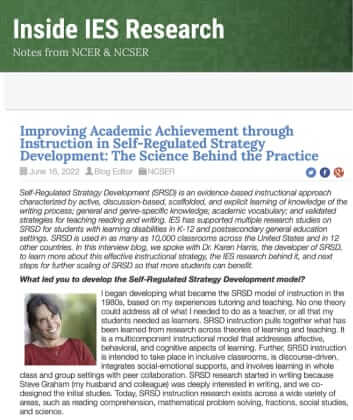
Improving Academic Achievement through Instruction in Self-Regulated Strategy Development: The Science Behind the Practice
June 16, 2022
This IES Research blog post explains how SRSD enhances academic performance by teaching students self-regulation and effective writing strategies.
Go To StudyThe Hitchhiker's Guide to the Science of Writing Research
Take a trip with Karen and Steve through the writing and reading research inspired by the creation of SRSD.
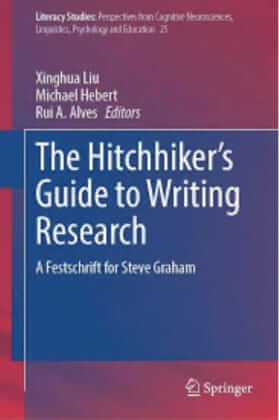
The Hitchhiker's Guide to Writing Research
“The Hitchhiker’s Guide to Writing Research” celebrates the extensive contributions of Steve Graham and Karen Harris to the science of writing research. This book compiles insights, stories, and studies from numerous researchers, many prominent in the SRSD community, showcasing the impact of Graham and Harris’ work on writing instruction and literacy development. It serves as a testament to his influential career and the legacy of his innovative approaches to education.
Go To BookThe Science of Writing Research
Studies by Steve Graham, Karen Harris, and colleagues demonstrate the extensive impact of SRSD and the Science of Writing.
Meta-Analysis of Elementary Writing
Instruction
Graham et al. 2012
This comprehensive meta-analysis evaluates various writing instruction methods, including SRSD. It establishes a solid empirical foundation for SRSD’s effectiveness at the elementary level, significantly improving students’ writing skills and enhancing student outcomes.
Go To StudyA Meta-Analysis of Writing Treatments for Students in Grades 6–12
Graham et al. 2023
The meta-analysis examines the effectiveness of various writing interventions for middle and high school students. The study finds that evidence-based SRSD significantly improves students’ writing abilities across these grade levels, demonstrating a positive and statistically detectable impact on students’ writing and reading.
Go To StudyThe Writing of Students with LD and a Meta-Analysis of SRSD Writing Intervention Studies: Redux
Graham, Harris, and McKeown, 2013
This chapter synthesizes findings from over 80 studies, focusing on the effectiveness of SRSD for students with learning disabilities. It highlights the broad and substantial benefits of SRSD across diverse educational settings, demonstrating its ability to improve these students’ writing skills significantly.
Go To StudyTeaching Writing to At-Risk Students: The Quality of Evidence for Self-Regulated Strategy Development
2009
The study “Teaching Writing to At-Risk Students: The Quality of Evidence for Self-Regulated Strategy Development” (2009) establishes SRSD as an evidence-based practice. It was published in Exceptional Children and demonstrates SRSD’s effectiveness in improving writing skills among at-risk students. The study underscores SRSD’s empirical support and potential to significantly enhance educational outcomes for this student population.
Go to ResourceTier 1, Teacher-Implemented Self-Regulated Strategy Development for Students with and without Behavioral Challenges: A Randomized Controlled Trial
Harris et al., 2012
The study “Tier 1, Teacher-Implemented Self-Regulated Strategy Development for Students with and without Behavioral Challenges: A Randomized Controlled Trial” (Harris et al., 2012) explores the effectiveness of SRSD in general education settings. Published in the Elementary School Journal, the research demonstrates that SRSD significantly improves writing outcomes for students with and without behavioral challenges. This randomized controlled trial highlights SRSD’s versatility and effectiveness as a Tier 1 intervention in diverse classroom environments.
Go to StudyProfessional Development for Multicomponent Strategy-Focused Writing Instruction: Knowledge Gained and Challenges Remaining
Harris, Camping, & McKeown
The review “Professional Development for Multicomponent Strategy-Focused Writing Instruction: Knowledge Gained and Challenges Remaining” (Harris, Camping, & McKeown) examines the research on professional development for SRSD. It highlights the successes and insights gained from implementing SRSD-focused training for educators, emphasizing its positive impact on teaching practices and student outcomes. The review also addresses the ongoing challenges and areas for improvement in designing and evaluating effective professional development for writing instruction.
Go to StudyThe Science of Writing and Reading
Writing Science shows that reading and writing are mutually reinforcing, each enhancing overall literacy skills through their powerful, interconnected relationship. This makes SRSD the perfect complement to student success.
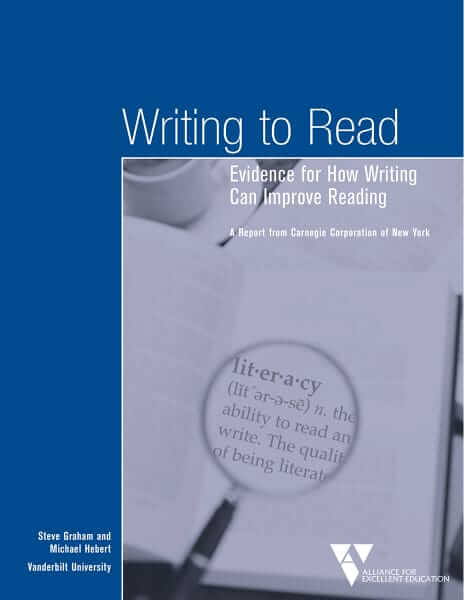
Writing Strengthens Reading
The Carnegie Corporation’s report, “Writing to Read: Evidence for How Writing Can Improve Reading” (2010), is a vital resource that highlights the scientific basis of the reciprocal relationship between reading and writing. The report presents compelling evidence that writing activities—such as summarizing texts, taking notes, and composing extended responses—significantly enhance reading comprehension and information retention. The findings are clear: writing about what they read enables students to process and understand texts more deeply, ultimately leading to stronger reading skills.
The Science of Writing Is Integral to the Science of Reading
Steve Graham explains the powerful connection between reading and writing.
The History of SRSD is The Science of Writing
SRSD is a cornerstone in the field we call 'The Science of Writing.’ Watch Karen Harris explain its origins.

The Science of Writing
Karen Harris's comprehensive 18-chapter video presentation offers her in-depth exploration of the power of Self-Regulated Strategy Development. It demonstrates how 40 years of evidence-based research have revolutionized writing instruction. You'll discover why writing is challenging to master and how SRSD empowers students to become independent and confident writers. Featuring real student examples that showcase remarkable before-and-after progress and data proving SRSD's effectiveness over traditional methods, this presentation covers everything from integrating reading and writing to providing teachers with manageable and impactful professional development. Whether you're interested in cost-effective solutions, improving state exam results, or witnessing the joy of writing come alive in students, this series offers compelling insights that inspire educators to rethink their approach to writing instruction.

"I'd love for you to check out my video series on Self-Regulated Strategy Development. With over 40 years of research behind it, SRSD has totally changed the game in writing instruction. You'll see real student transformations and find out how to help your students become confident, independent writers. Let's rethink how we teach writing together!"
